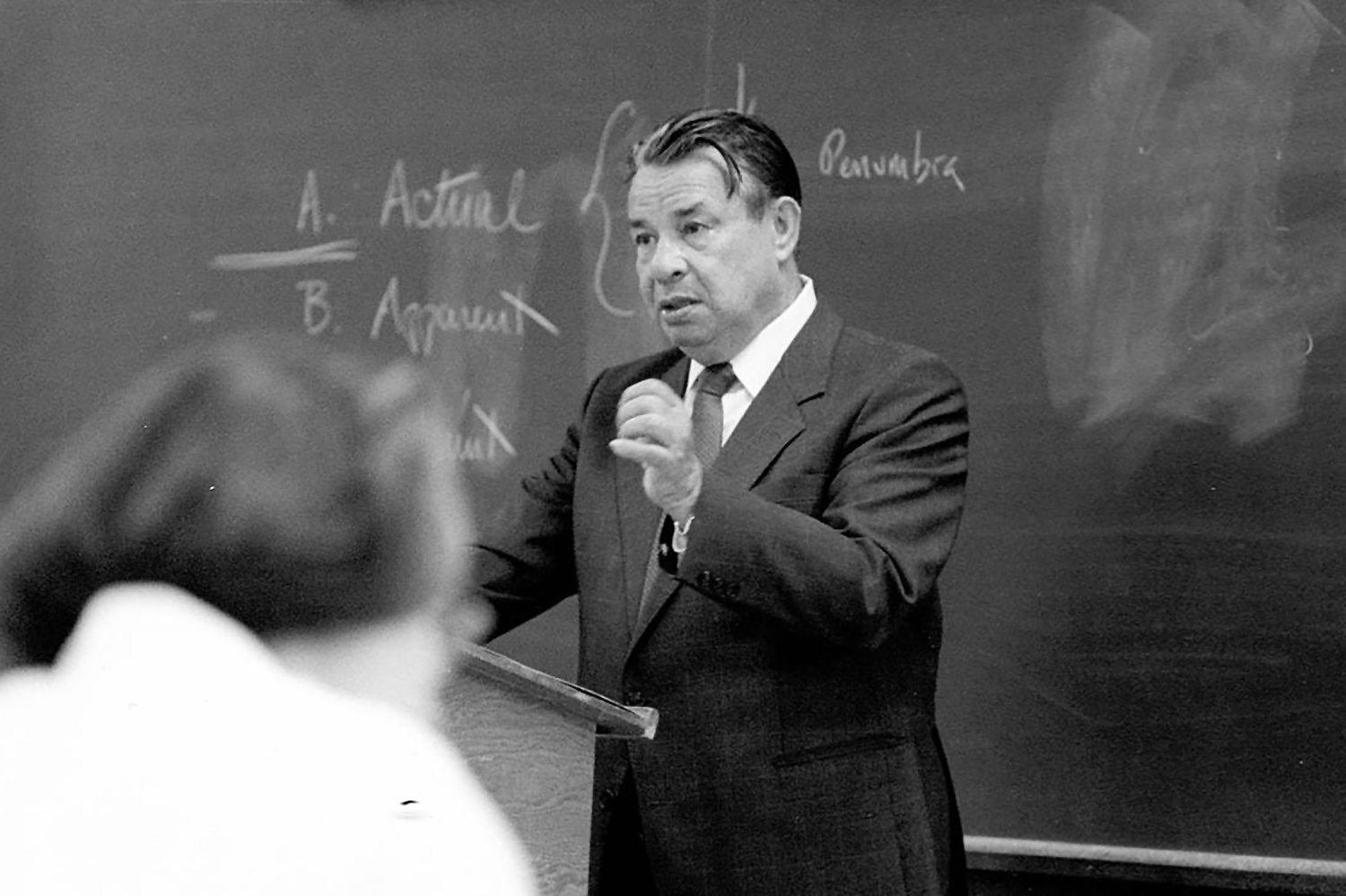The late Olimpiad Ioffe, a distinguished Russian émigré who helped establish the study of international law at the University of Connecticut School of Law, will be celebrated this year to mark the 100th anniversary of his birth.
Born Jan. 22, 1920 in Ukraine, just before its entry into the U.S.S.R., Ioffe was educated at Leningrad State University. He received his first law degree in 1941, before World War II interrupted his legal career. After returning from the front lines, he earned the degree of Doctor of Juridical Science in 1954 and rose to great prominence as a Soviet legal scholar.
In a short biographical sketch, published posthumously, Ioffe described the challenges of publishing scholarly legal works in the Soviet Union. In one case, the editor of a journal objected that an article Ioffe wrote had no references to Leonid Brezhnev, then the general secretary of the Central Committee of the Communist Party. “No one noticed that before, because the logic of the article did not require such references,” Ioffe wrote. Nevertheless, he and the editor scrutinized Brezhnev’s speeches to come up with a reference because “one cannot hope to live as if there is no Communist Party, no Central Committee, and no Brezhnev.”
He left the Soviet Union in 1981, after his daughter’s decision to immigrate to the United States turned the Soviet government against him. He landed first as a research fellow at Harvard and subsequently accepted a position at UConn Law, where he was named the William F. Starr Professor of Law and where he remained until his retirement in 1998. He died in 2005.
Ioffe was a pillar of the law school from the day he was hired, according to a tribute written by former Dean Phillip I. Blumberg, and his legacy continues to contribute to the school’s international reputation. In addition to teaching Comparative Law, Roman Law and Soviet Law, Ioffe was one of the first American law professors to conduct classes on human rights.
Blumberg described Ioffe as a man of “iron will and endless energy” who did not often change his mind readily. His time as a soldier on the front lines of war strengthened his capacity for hard work and fostered unbreakable discipline
Ioffe wrote more than 30 books and 200 articles over the course of his career. After his arrival in the United States, he continued to write in Russian for translation into English so he could be precise in his language. His work was suppressed in the Soviet Union until after its fall, when it was embraced again as “the pride of [their] juridical science,” Blumberg wrote.
Ioffe will be honored at an event at UConn School of Law in October, on a date to be determined.


